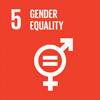
In today’s increasingly fragile world, marked by the VUCA (Volatility, Uncertainty, Complexity, Ambiguity) and BANI (Brittle, Anxious, Nonlinear, Incomprehensible) eras, the issue of leadership has become ever more crucial. Today’s leaders face technological disruptions, geopolitical conflicts, environmental crises, generational gaps, and internal organizational issues, including compulsory citizenship behavior, quiet quitting, and the increasing demand for purpose-driven organizations. On top of that, leaders face personal challenges ranging from the risks of narcissism to burnout. Amid this turbulence, a critical question arises: are traditional leadership styles still relevant, or do we need a more adaptive, collaborative, and visionary model of contemporary leadership?
Professor of Psychology and Organizational Behavior at FEB UGM, Prof. Gugup Kismono, emphasized that there is no single formula for effective leadership. He believes that leadership effectiveness depends heavily on internal and external organizational dynamics.
“Within the organization, human resources come from multiple generations with differing behavioral orientations. Although socialization processes exist, the internalization of values often does not run perfectly, which may lead to conflict. Meanwhile, the external environment is far less controllable, which makes collaborative leadership more important than conventional leadership based on positional power,” Gugup stated.
He further explained that the current situation is very different from the past. In earlier times, stable environments made leaders with comprehensive knowledge central figures, and top-down decision-making was adequate.
“Today, however, leaders must rely on non-positional power by strengthening collaboration and creating more space for members to contribute. Leaders must be willing to set aside their egos, give room to younger generations, and provide platforms where they can actively contribute,” he explained.
Beyond collaboration, contemporary leadership also requires flexibility, adaptability, and agility to integrate seemingly opposing dimensions. Gugup described the concept of extremity leadership as a necessity for today’s leaders.
“Rigidity in leadership needs to be reduced and replaced with flexibility, so that opposing dimensions can be integrated into something beneficial for the organization,” he added.
Furthermore, he underlined the critical role of higher education in preparing future leaders. For instance, FEB UGM’s curriculum aims to develop resilient business leaders by incorporating project-based learning, teamwork, and direct community engagement.
“The curriculum at FEB UGM is structured to equip students with critical thinking, empathy, ethical values, and adaptability. All of these aspects foster empathy and shape student character,” he revealed.
He also told younger generations to be prepared for change, as uncertainty is inevitable.
“Change happens rapidly, and the future direction is difficult to predict. What we prepare today may no longer be relevant tomorrow. For the younger generation, you must be champions of change hence it is vital to be flexible, agile, and adaptive,” Gugup concluded.
Reported by: Shofi Hawa Anjani
Editor: Kurnia Ekaptinigrum
Sustainable Development Goals










